- Home
- Isaac Hooke
Flagship (A Captain's Crucible #1) Page 7
Flagship (A Captain's Crucible #1) Read online
Page 7
"I did, Captain," the helmsman responded.
The task unit continued around the moon, with the lagging Grimm taking up the rear. The distance between the flotilla and the enemy widened by the second.
"Target is continuing to turn around," Miko said. "They're decelerating now, too."
"Helm!" Jonathan said. "Get us behind that moon."
In a few moments the enemy ship passed beyond sight, hidden by the moon.
Ahead, the gas giant had emerged from behind the dark mass of the celestial object.
"Nav, plot a course for the giant," Jonathan said. "Use the gravity well to slingshot us away from the pursuer. Tactical, relay the course to the unit. Comm, launch a relay drone and inform the admiral of our current predicament."
Twenty minutes passed. The red dots representing the two enemy vessels had frozen when the Callaway passed beyond the moon's horizon. The gas giant lay directly above them, growing closer by the minute as the task unit attempted its slingshot maneuver. The bridge began to shudder slightly as the conflicting forces acting upon the ship vied for dominance—inertia, gravity, and thrust.
Jonathan switched to the forward camera. He saw the haze of the horizon in the distance, just below the vast, round sphere that was the giant. He enlarged the feed to take up the entirety of his aReal.
The stars seemed so alone there, floating below that horizon. Alone, and free.
The beautiful sight calmed him somewhat, reminding him of a view from another lifetime, near the summit of a mountain.
The wreckage of the Dominion came to his mind's eye. Over eight hundred crew and two hundred civilians had been aboard.
He heard Famina's voice in his head. Why won't anyone help me?
"Pursuing vessel has crested Achilles I," the ensign announced. "But the farther ship's position is still concealed by the moon."
Jonathan switched to the rear camera and tracked the target, zooming in. The enemy ship was visible, thanks to the light from the distant star. With its dagger-like shape, the incoming object bore a vague resemblance to a United Systems corvette, though it seemed slightly more streamlined, with a smooth hull completely devoid of superstructures and polished to a mirrorlike sheen. At two kilometers in length and seven hundred and fifty meters at the beam, it was the size of a United Systems capital ship. Jonathan zoomed in further and began to lose optical clarity. Still, he thought he could see the small, dark gashes where the Vipers had ripped into the hull. It was his imagination of course, as any tears would only be a centimeter in thickness.
"How much range have we put between ourselves and the ship?" Jonathan said.
"Forty thousand kilometers," Miko answered. "Though the target is closing that gap."
"If we launched rear kinetic kill missiles," Jonathan said. "Will the weapons make the target?"
Miko was quiet a moment. "I believe so. But just barely. The Delta-V requirements necessary to transit into the higher orbits of the gas giant will cause the missiles to exhaust all propellant shortly before arrival."
"What about a nuke?" Jonathan asked.
"Even worse. Because of the extra weight, we'll only be able to get a nuke out to about halfway."
"Fighters?"
"Same issue." Miko seemed determined to deliver bad news. "We send any squadrons out there, they're liable to exhaust their propellant sometime before or after reaching the target. And the controls will be extremely sluggish—they'll have a hell of a time dodging that particle beam. Either way, they won't be coming home."
Jonathan tapped his chin with his usual triangular arrangement of fingers. "Have every capable vessel in the task unit launch four kinetic kill missiles each at the target," Jonathan said. "Space out the launch so that the missiles arrive in ten second intervals. I want the projectiles to approach on different vectors, too, if possible. Let's see if we can sneak one in while their particle beam is recharging. Fire when ready."
"Firing," Miko said a moment later.
Jonathan studied the display. He watched the first wave of missiles, represented as four green dots, spread out behind the task unit. Three more waves followed, separated by a distance of about ten kilometers each. The waves approached the target, traveling diagonally down the Z and Y planes. The missile course changes came slower than normal, thanks to the massive Delta V's required near the gas giant.
Several minutes later the first wave closed to within ten thousand kilometers of the target.
"Let's see what kind of point defenses they have," Jonathan said.
"Target is adjusting its trajectory," McNamara said. "Looks like it's going to try flying right past the missiles."
Jonathan studied the display. The dotted line representing the target's path updated. According to the estimated trajectory, it would avoid the first two waves entirely, but the third and fourth would impact.
The minutes ticked past. As expected, the first two waves missed by two kilometers each. The third and fourth however directly lined up with the ship.
"Detecting a thermal buildup in the nose of the target," McNamara said. There was a flash, followed by eight simultaneous, smaller lights. "All eight kinetic kill missiles have detonated. Target is issuing a slight course correction to avoid the debris."
The enemy was now twenty thousand kilometers behind the task unit, with the trailing Grimm the closest to it.
"What about another Viper broadside?" Jonathan said. "We're at one hundred percent charge."
"We are," Miko agreed. "But the spot area at this range is over eighty centimeters squared. Even combined with the other ships, the intensity will be less than three megajoules."
"Let them close and then fire?" Robert asked Jonathan.
"I'm not big on any plan that allows them to close," Jonathan said. "We've already seen how deadly that particle beam is under five thousand kilometers." He studied the 3D display a moment longer. "Tactical, have the Aurelia, Maelstrom and Selene alter course ten degrees to the starboard, and the Grimm ten to port. Helm, match the course of the Callaway to the Grimm."
"I thought you didn't like splitting up the task unit?" Robert said.
"I don't," Jonathan answered.
He watched on the 3D display as the Callaway and Grimm separated from the other two ships.
"Enemy vessel is adjusting course," the ensign announced.
The dotted line of the pursuer moved to intercept the lagging Grimm. The enemy smelled easy prey, apparently. The harvester vessel lay approximately a thousand kilometers off the Callaway's aft quarter, in the eight o'clock position, thirty degrees declination. And it was moving farther away by the moment.
"What are you planning, Captain?" Robert said.
"I'm taking us closer to Achilles," Jonathan said.
nine
Jonathan concentrated on the display.
Robert extended his noise canceler around the captain.
"Are you sure the Callaway can withstand the stress?" Robert said. "She doesn't have the armor of the Grimm."
"I only plan to skim the upper atmosphere," Jonathan said. "Like skipping a stone on a river."
"That's a fairly big river," Robert said, his usual positivity nowhere to be found.
"The Callaway will hold up. Right, Maxwell?"
"There is a seventy-five percent chance the Callaway will survive such close proximity to the gas giant," Maxwell said.
"There you go," Jonathan told Robert.
The commander didn't seem pleased. "Seventy-five percent. Those aren't the best odds. Even at ninety-nine percent, I wouldn't feel safe."
"Very few things in life are seventy-five percent, Robert. Let alone ninety-nine."
Robert squeezed his jaw. "If we break up... we won't be able to launch escape pods. Not this close to the giant. You know that, right?"
"I do." Jonathan repealed Robert's noise canceling. "Helm, take us in closer to the giant."
The helmsman hesitated.
"Helm?" Jonathan repeated.
"Taking us closer. Ini
tiating braking maneuver."
The best way to enter a massive gravity well like a gas giant was by "falling" in. To do that, one simply decelerated, forcing the orbit to rapidly decay.
"Tactical, instruct the Grimm to follow us down."
The tense minutes passed, with the Callaway growing ever closer to the colorful mass of clouds below.
"Hull temperature is rising," Ensign McNamara said. "Currently six hundred degrees Kelvin. Heat armor is holding."
Behind them, the pursuing vessel decelerated, too, choosing to stay with the pair. The target was fifteen thousand kilometers away.
"Entering upper thermosphere," Ensign McNamara said. "Hull temperature stabilizing at one thousand Kelvin."
"Hold her steady..." Jonathan said.
A few minutes later:
"Hull temperature has dropped to four hundred Kelvin." McNamara said. That was the peculiar nature of Jovian-type gas giants—the radiated heat peaked roughly a thousand kilometers from the surface, then decreased to the tropopause, where it would begin rising again.
"Approaching Kármán line of lower thermosphere," Miko said. That was the point at which atmospheric reentry began, about four hundred kilometers above the cloud coverage.
"Nose up," Jonathan said. "Helm, bounce us off the lower thermosphere. Start the long process of disengaging from the gravity well. Tactical, instruct the Grimm to do likewise."
"Nose up," the helmsman said. "Initiating deorbital pre-burn sequence."
The bridge began to shake badly as the Callaway's hull struggled against the stresses exerted upon the ship—inertia wanted to carry her forward, the thrusters wanted to push her away, the gas giant wanted to draw her in; all of these forces vying against one another literally threatened to rip the Callaway apart.
A call from engineering flashed urgently in the lower left of Jonathan's HUD.
The captain answered it reluctantly.
"What in the hell are you doing?" Stanley said over the comm. "You're going to tear my ship apart!"
"She'll hold together, Stan. And if you wouldn't mind, we're in the middle of a battle here. Don't call again unless you have something urgent to report. Do your best to keep our reactors running. Now would not be a good time for the engines to fail."
Jonathan disconnected before the chief engineer could answer.
He gazed at the tactical display. The Callaway and Grimm moved away from the gas giant very sluggishly. It was small consolation that the enemy ship's own course changes were just as lethargic. The target was still gaining, however.
Jonathan pulled up the propellant indicator on his HUD. The inert gas levels were dropping incredibly fast thanks to the immense Delta V costs—the tanks would have enough to escape the gravity well, though just barely. When the battle was done he would have to transfer some propellant away from the other ships to restore the Callaway to baseline levels.
Jonathan and the others were jerked in their seats as the inertial compensators struggled against a sudden reversal of Gs.
"We just bounced off the Kármán line," the helmsman informed him.
"Steady as she goes..." Jonathan glanced at the 3D display. The Grimm was fifteen hundred kilometers behind them. Twelve thousand kilometers beyond it lay the alien vessel. Too close for comfort.
But close enough for what he planned.
"Tactical, work with Maxwell," Jonathan said. "I want you to launch fifteen mortars from the aft tubes at the enemy ship. Hem them in with the first ten. I want the final five directed at the lower thermosphere. Make them think we miscalculated. But in reality, I want you to skim those final five off the Kármán line. Time it so that the deflection happens as close to the target as possible. Catch them by surprise."
Kinetic kill missiles or even nukes would have worked just as well, but that close to the gas giant, missiles behaved the same as the unpowered mortars, which were basically big rocks.
"It's going to be tricky," Miko said. "We'll have to orient the launch tubes so that the mortars arrive at the Kármán Line at the precise angle for optimal deflection. And time that deflection so that at least one of the mortars actually strikes the ship."
"Like I said, work with Maxwell."
The moments ticked past. Jonathan watched the enemy vessel close to nine thousand kilometers.
"Hull temperature rising again," McNamara said.
Growing impatient, Jonathan said: "Miko, do you have a firing solution?"
Miko didn't answer.
"Tactical, do you have a firing solution?" Jonathan repeated.
"I think so," Miko said.
"Fire."
Fifteen mortars released in rapid succession from the aft tubes. On the tactical display, the first ten formed a circular noose around the enemy ship. The final five seemed to be misses, heading at a downward angle as if to pass underneath the target.
On the tactical display, three of the five bottommost mortars passed through the indicated Kármán Line, their orientations off by just enough to make the skimming process fail. They would burn up shortly.
However two of the mortars abruptly changed course, deflecting upward from the Kármán Line and toward the target.
"Like skipping stones on a river," Jonathan said softly.
"Enemy ship is issuing sudden braking thrust," Ensign McNamara said.
"Too late," Jonathan said.
"They're firing their particle beam."
Jonathan waited. The shaking of the bridge didn't seem any worse.
"Damage report?" he said after a moment.
"According to my readings," McNamara said. "The beam only lasted a tenth of its usual duration. They struck the Grimm's aft section. Her captain is reporting minimal damage."
"That beam of theirs obeys the inverse square law," Robert said. Meaning the intensity dropped by the square of the distance to the source.
"If it's a particle beam, it has to," Jonathan said. "The extra armor on the Grimm probably helped. Plus the fact that it only fired for a tenth of its usual duration. Ensign, tell me our mortars struck."
"Both struck," McNamara said.
Jonathan clasped his right hand into a triumphant fist. "Status on the target?"
"They appear to have taken major damage to the nose section. I believe their particle weapon is nonoperational. And their engines have cut out entirely. The vessel is on a decaying orbit; at their current rate of descent, it will be about four weeks before they penetrate the Kármán line, and if they survive reentry, another two months before they breach the cloud cover. Maybe another six months after that before the vessel is crushed by the pressure."
"Achilles heel," Jonathan said.
On the external video feed, he zoomed in on the target. He switched to LIDAR. The damage to the vessel was incredible. According to the display, a gaping wound two hundred meters deep and ten meters wide was carved into the ship from the nose down.
He glanced at the comm officer. "Signal for their surrender. And extend an invitation of aid."
"No response," the lieutenant said.
"Not surprising." Robert said. "They can't understand us, of course."
Jonathan smiled sadly. "We had to try."
"Sir, their speed is dramatically dropping off." McNamara said.
"What?" Jonathan said. "I thought their engines had cut out?"
"They had... but it looks like they reactivated them. They appear to be applying reverse thrust. They're purposely decaying their orbit."
"Why hasten their demise? You said it would be four weeks before they even reached the Kármán line. That's enough time to at least attempt a repair."
"But they know they'd be at our mercy the whole time," Miko said. "Maybe, to them, this was the only honorable choice."
Jonathan regarded the tactical officer appraisingly. "I get the feeling you come from a Japanese background."
Miko managed a weak smile. "My distant ancestors were samurai."
Jonathan switched his gaze to the helmsman. "Get us out of her
e."
ten
Jonathan stood on the mountain. The sky was clear, and he could see the peaks and valleys of the surrounding range. Such a pristine, beautiful day. Or it would have been pristine, were it not for the frozen bodies of the Dominion's crew protruding from the snow around him, their porcelain-colored faces staring at him with dead, accusing eyes. Famina was there, too. Laughing shrilly.
Jonathan awoke, drenched in sweat.
He had returned to his quarters shortly after the battle, intending to review the missive he had received from the admiral right before the enemy ship turned up. He had decided to take a quick nap first, but apparently he'd fallen fast asleep.
He rubbed his eyes, feeling more exhausted than he had before he'd lain down.
He donned his aReal spectacles. The system scanned his retina and logged him in. The bare steel wall beside him was replaced immediately by the lapping waves of a white sand beach, the tropical sun beating down from a clear blue sky. The bed had become a hammock tied between two lush palm trees. Seagulls periodically screeched overhead.
In that moment he envied those who installed Implants. To be able to feel the breeze, smell the humid air, feel the sun on his face... that was the ultimate immersion. Still, he sighed contentedly nonetheless. There was nothing like augmented reality for cabin fever. It certainly helped one keep their sanity aboard a cramped starship like the Callaway. And the sound of those waves worked wonders on the frayed nerves the nightmare had caused.
He reluctantly turned his back on the beach, muted the gulls, and activated the tactical overlay.
Seven hours had passed since the encounter. The task unit was in orbit around Achilles I, searching for survivors of the Dominion, whose wreckage remained in a decaying orbit above the moon.
About two hours ago, the officer on watch reported a flash in the lower thermosphere of the gas giant, coinciding with the loss of the enemy ship from active sensors. The CDC believed it had burned up.
What a way to go.
His attention was drawn to the red dot indicating where the second enemy ship had returned to the sensor readings. The vessel was well on its way to Contessa Gate, the only exit from the system.

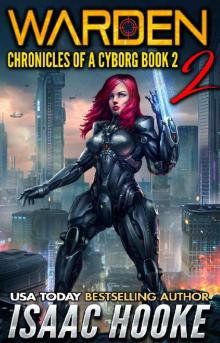 Warden 2
Warden 2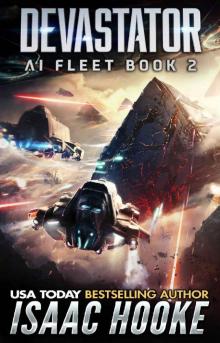 Devastator
Devastator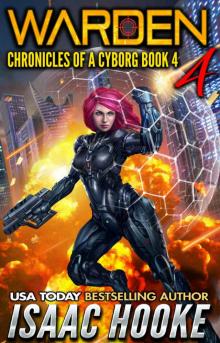 Warden 4
Warden 4 Emperor
Emperor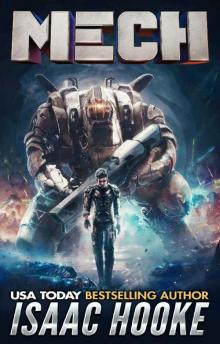 Mech
Mech Conqueror
Conqueror Fighter
Fighter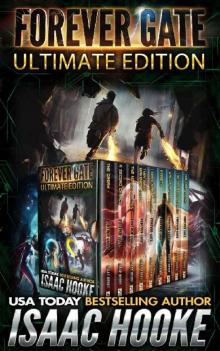 The Forever Gate Ultimate Edition
The Forever Gate Ultimate Edition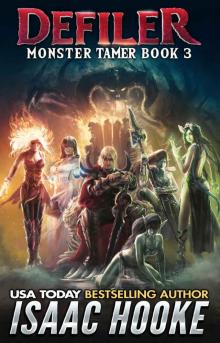 Defiler
Defiler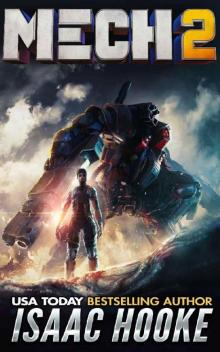 Mech 2
Mech 2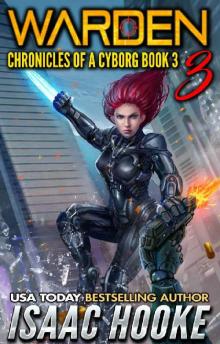 Warden 3
Warden 3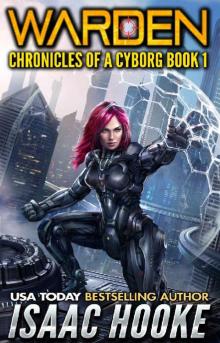 Warden 1
Warden 1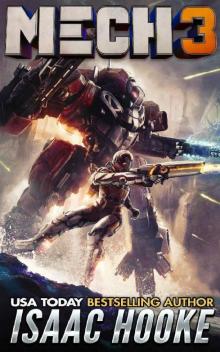 Mech 3
Mech 3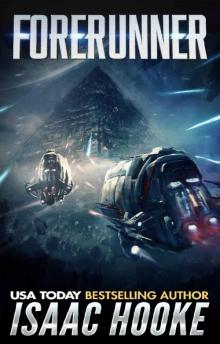 Forerunner
Forerunner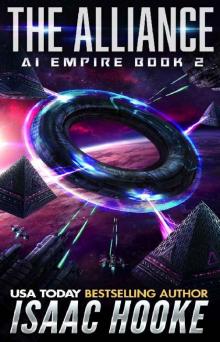 The Alliance (AI Empire Book 2)
The Alliance (AI Empire Book 2)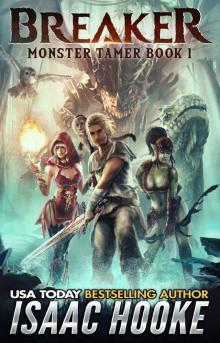 Breaker (Monster Tamer Book 1)
Breaker (Monster Tamer Book 1) Bender of Worlds
Bender of Worlds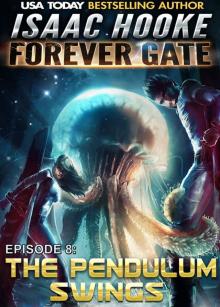 The Pendulum Swings (The Forever Gate Book 8)
The Pendulum Swings (The Forever Gate Book 8)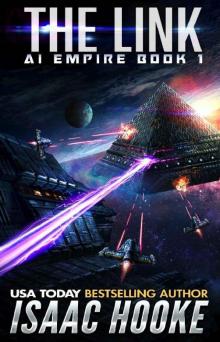 The Link
The Link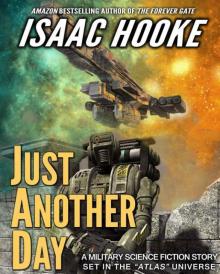 Just Another Day
Just Another Day Star Warrior
Star Warrior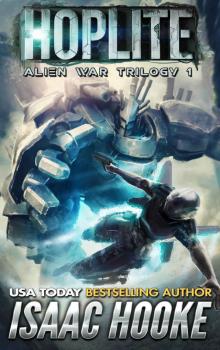 Alien War Trilogy 1: Hoplite
Alien War Trilogy 1: Hoplite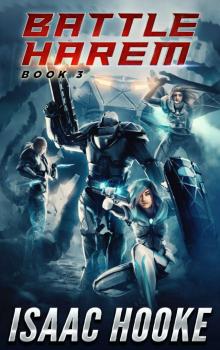 Battle Harem 3
Battle Harem 3 The Ethan Galaal Series: Books 1 - 3
The Ethan Galaal Series: Books 1 - 3 Reloaded
Reloaded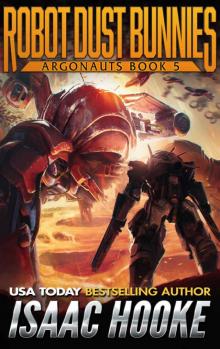 Robot Dust Bunnies (Argonauts Book 5)
Robot Dust Bunnies (Argonauts Book 5) Battle Harem
Battle Harem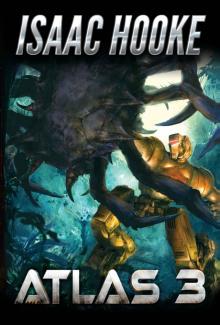 ATLAS 3 (ATLAS Series Book 3)
ATLAS 3 (ATLAS Series Book 3)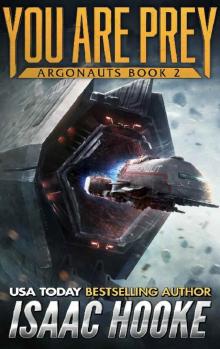 Argonauts 2: You Are Prey
Argonauts 2: You Are Prey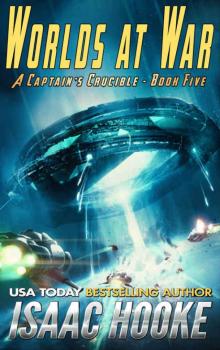 Worlds at War (A Captain's Crucible Book 5)
Worlds at War (A Captain's Crucible Book 5)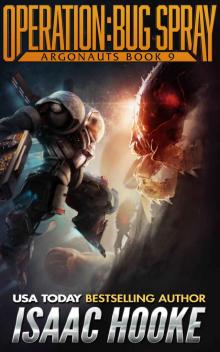 Operation: Bug Spray (Argonauts Book 9)
Operation: Bug Spray (Argonauts Book 9)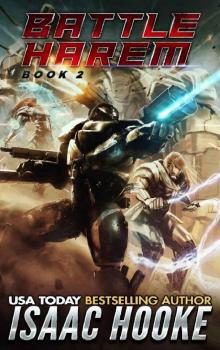 Battle Harem 2
Battle Harem 2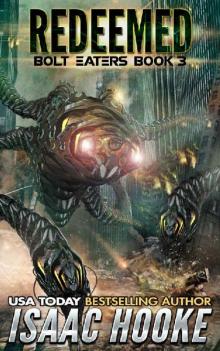 Redeemed (Bolt Eaters Trilogy Book 3)
Redeemed (Bolt Eaters Trilogy Book 3)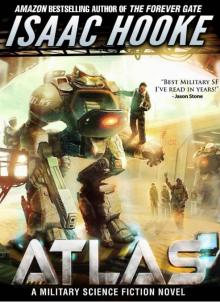 Atlas
Atlas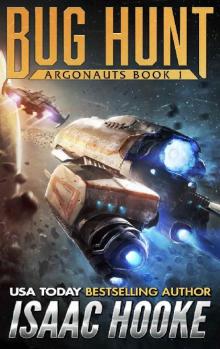 Argonauts 1: Bug Hunt
Argonauts 1: Bug Hunt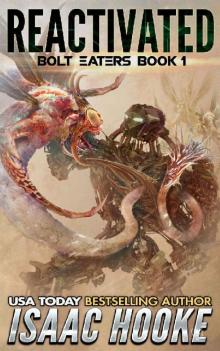 Reactivated (Bolt Eaters Trilogy Book 1)
Reactivated (Bolt Eaters Trilogy Book 1)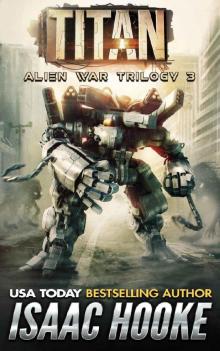 Alien War Trilogy 3: Titan
Alien War Trilogy 3: Titan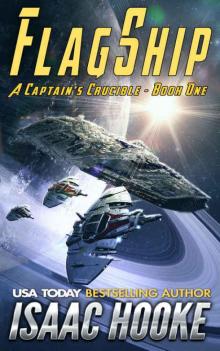 Flagship (A Captain's Crucible #1)
Flagship (A Captain's Crucible #1)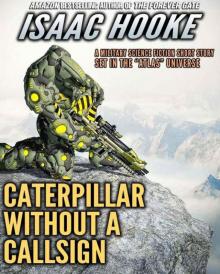 Caterpillar Without A Callsign
Caterpillar Without A Callsign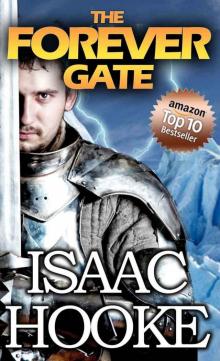 The Forever Gate
The Forever Gate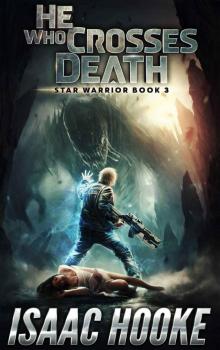 He Who Crosses Death (Star Warrior Quadrilogy Book 3)
He Who Crosses Death (Star Warrior Quadrilogy Book 3)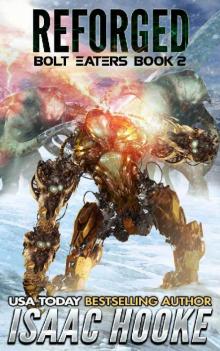 Reforged (Bolt Eaters Trilogy Book 2)
Reforged (Bolt Eaters Trilogy Book 2)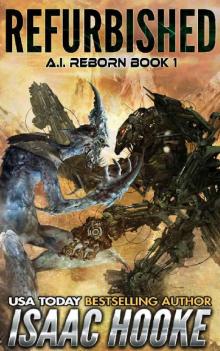 Refurbished
Refurbished Reloaded (AI Reborn Trilogy Book 2)
Reloaded (AI Reborn Trilogy Book 2)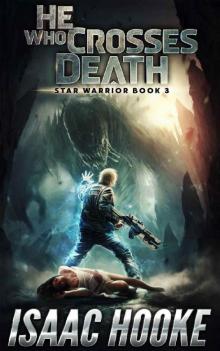 He Who Crosses Death
He Who Crosses Death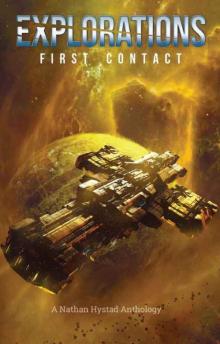 Explorations: First Contact
Explorations: First Contact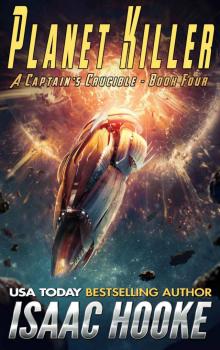 Planet Killer (A Captain's Crucible Book 4)
Planet Killer (A Captain's Crucible Book 4)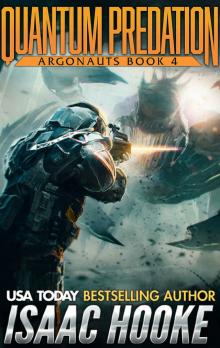 Quantum Predation (Argonauts Book 4)
Quantum Predation (Argonauts Book 4)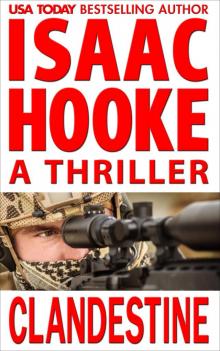 Clandestine-IsaacHooke-FreeFollowup
Clandestine-IsaacHooke-FreeFollowup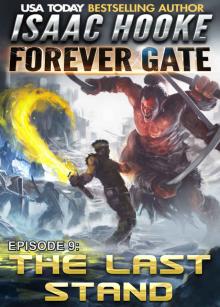 The Last Stand (The Forever Gate Book 9)
The Last Stand (The Forever Gate Book 9)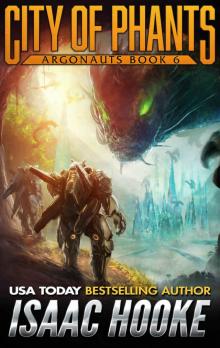 City of Phants (Argonauts Book 6)
City of Phants (Argonauts Book 6)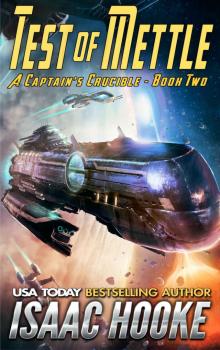 Test of Mettle (A Captain's Crucible Book 2)
Test of Mettle (A Captain's Crucible Book 2)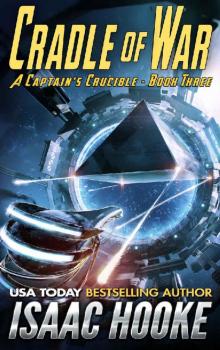 Cradle of War (A Captain's Crucible Book 3)
Cradle of War (A Captain's Crucible Book 3)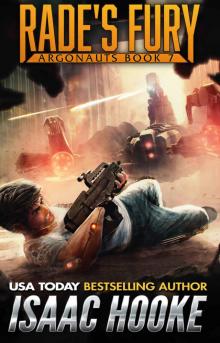 Rade's Fury (Argonauts Book 7)
Rade's Fury (Argonauts Book 7)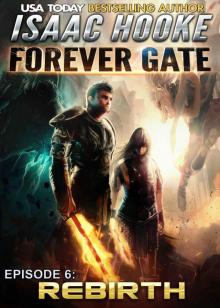 Rebirth (The Forever Gate Book 6)
Rebirth (The Forever Gate Book 6)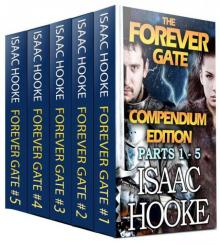 The Forever Gate Compendium Edition
The Forever Gate Compendium Edition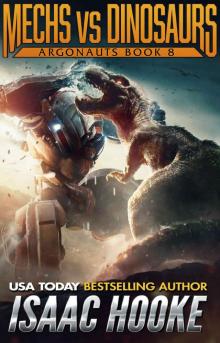 Mechs vs. Dinosaurs (Argonauts Book 8)
Mechs vs. Dinosaurs (Argonauts Book 8)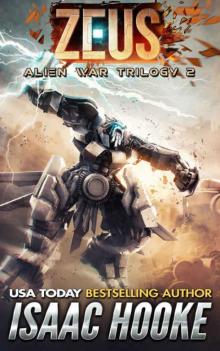 Alien War Trilogy 2: Zeus
Alien War Trilogy 2: Zeus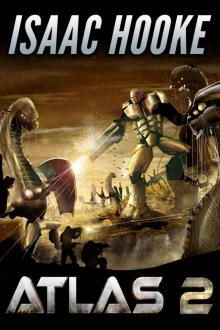 ATLAS 2 (ATLAS Series Book 2)
ATLAS 2 (ATLAS Series Book 2)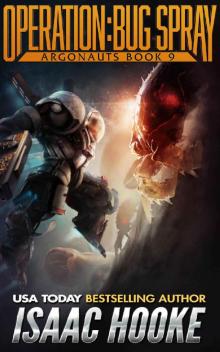 Operation_Bug Spray
Operation_Bug Spray